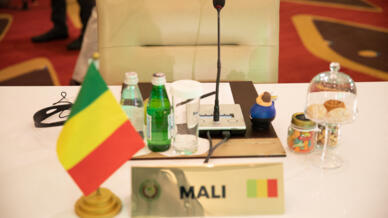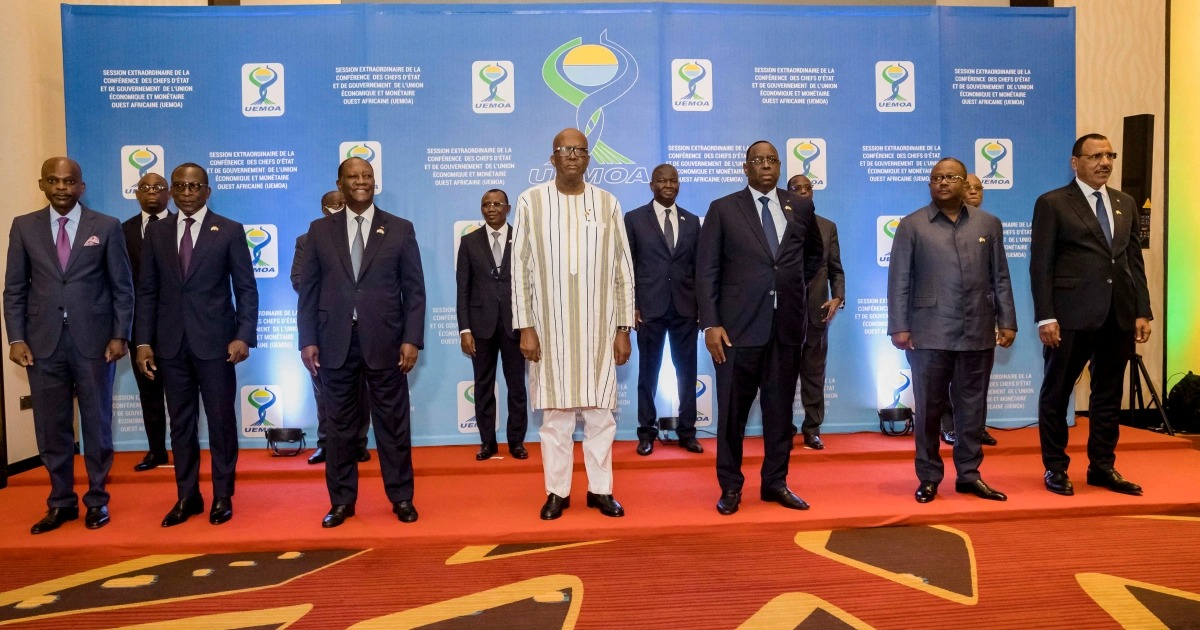West Africa’s main regional bloc will close borders with Mali and impose sweeping economic sanctions in response to delays holding promised elections after a 2020 military coup, the president of the bloc’s commission said on Sunday.
Mali’s ruling junta said it “strongly” condemned “illegal” sanctions imposed on the country by ECOWAS.
In a statement read on national television overnight Sunday to Monday, the military regime’s spokesman Colonel Abdoulaye Maiga announced the recall of Bamako’s ambassadors to the West African nations involved and the closure of air and land borders with them.
The list of tough new sanctions were a sign of the significant hardening of the bloc’s stance on Mali, whose interim authorities have proposed holding elections in December 2025 instead of this February as originally agreed.

In a communiqué issued after an emergency summit, ECOWAS said it found the proposed timetable for a transition back to constitutional rule totally unacceptable.
This schedule “simply means that an illegitimate military transition Government will take the Malian people hostage,” it said.
The 15-member bloc said it had agreed to impose additional sanctions with immediate effect. These included the closure of members’ land and air borders with Mali, the suspension of non-essential financial transactions, and the freezing of Malian state assets in ECOWAS commercial banks and by the central bank of the eight-nation West African CFA franc zone.
Reporting from Accra, FRANCE 24’s Hannane Ferdjani explained the new sanctions would be effective immediately. “ECOWAS members were very adamant that sanctions will not be lifted until Mali’s junta decides to comply with their initial commitment, which is to hold elections as early as possible,” said Ferdjani.
Timetable for a democratic transition
Last August, army officers led by Colonel Assimi Goita toppled the elected president Ibrahim Boubacar Keita amid street protests against his unpopular rule.
Under threat of sanctions, Goita subsequently promised to restore civilian rule in February 2022 after holding presidential and legislative elections.
But he staged a de facto second coup in May 2021, forcing out an interim civilian government.
The move disrupted the reform timetable and was met with widespread diplomatic condemnation.
ECOWAS insisted that Mali hold elections in February.
But the government then said it would only set an election date after holding a nationwide conference – arguing a peaceful vote was more important than speed.
On December 30, after Mali’s reform conference ended, the government suggested a transition period of between six months and five years, starting from January 1, 2022.
But ECOWAS mediator Goodluck Jonathan asked the regime to revise that plan during a visit last week, Mali’s foreign minister said.
On Saturday, the junta submitted a new proposed timetable, Malian state television reported.
The move was intended “to maintain dialogue and good cooperation with ECOWAS”, said Malian Foreign Minister Abdoulaye Diop.
Pressure on Mali
The 15-nation grouping has led the push for Mali to uphold its commitment to staging elections early this year.
The return to civilian rule has put the bloc’s credibility on the line as it seeks to uphold fundamental principles of governance and contain regional instability.
Swathes of Mali lie outside of state control, with the government struggling to quell a jihadist insurgency that has raged since 2012.
At a summit on December 12, ECOWAS leaders reiterated demands that the elections be held by February 27 as initially planned.
They maintained sanctions such as asset freezes and travel bans within the ECOWAS region against around 150 junta figures and their families and threatened further “economic and financial” measures.
Observers were expecting tougher sanctions to be announced at the end of Sunday’s summit, explained Ferdjani.
Sanctions have proved effective in the past. ECOWAS responded to Goita’s first coup in 2020 by shuttering Mali’s borders, imposing trade restrictions, and suspending the country from its decision-making bodies.
Mali’s army installed a civilian-led government in response and pledged to hold elections, which led to a lifting of the economic sanctions, although Mali remains suspended from the bloc’s main bodies.
(FRANCE 24 with AFP and REUTERS)



Comment here
You must be logged in to post a comment.